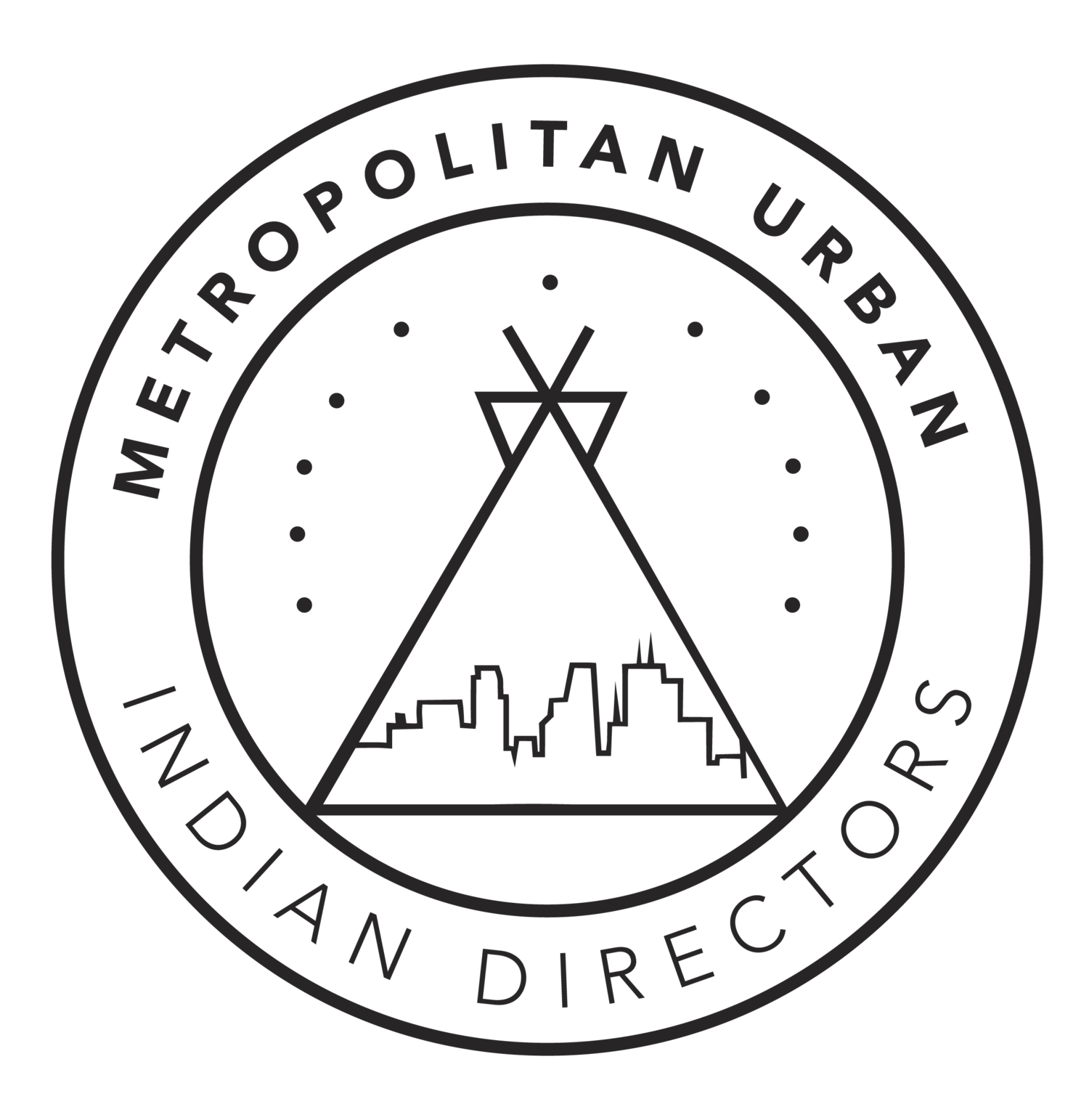December 8, 2023
To whom it may concern:
As leaders of organizations serving our urban Native community, we recognize the importance of responding to the growing public discourse around the pending enclosure of the large encampment in South Minneapolis (which lists an address of 1308 E 23rd Street). While we acknowledge and appreciate the early and continued efforts of camp organizers, the public health and safety crisis clearly cannot be managed and our Native children, elders, and other vulnerable community members are the most at-risk. While we’ve been operating more in a planning and action-focused mode, MUID needed to respond as media outlets have centered only the Native perspective coming from a distinct few. This further perpetuates white supremacist practices that try to simplify and homogenize Native peoples (for a multitude of reasons we don’t have time to share in this communication). The loudest voice doesn’t mean it’s the most representative or accurate. There are calls-to-action using provocative language that is also meant to capture attention and headlines with verbiage like the “Minneapolis Trail of Tears” and not depicting the veracity of the nature of the enclosure and all of the behind-the-scenes coordination that has happened with both the city, MUID, and other key organizations to provide coordinated housing and long-term services for up to 75 individuals and counting & care boxes so our relatives have the desired essentials for their transition. Our concern is that these calls are inciting potentially aggressive responses, on the day of December 14th, to what should not be a violent process or encounter. Even as we collectively work to place more and more individuals into secured housing and services, there are resources identified for those who did not elect services, or the remaining folks not yet placed, to have immediate food and shelter.
Yesterday evening, MN Public Radio covered the story of the City Council of Minneapolis passing a resolution declaring unsheltered homelessness a public health emergency (which it has been for many years prior). While MPR didn’t follow up on their own request to visit with us weeks ago, we are glad that these issues are reaching beyond our own communities so that longer-term solutions can also be centered – not only when crisis levels are achieved.
Encampments may deliver some short-term benefits for harm reduction because we at least know where people are, but there is an entire body of research and experience from city leadership across the nation that demonstrates they have a predictable life cycle (which we are seeing here) and ultimately have never worked for the well-being and stability that those living in the encampments require and deserve. And, our people deserve better housing alternatives and care than living in subzero temperatures without plumbing or other basic amenities. This is what we are continuing to push for and we will not put it down after this immediate crisis falls off the media’s radar.
MUID promotes the well-being, growth and mutual interests of metropolitan American Indian organizations. https://muidgroup.wixsite.com/muid
We firmly believe this encampment has not been elevated like the “Wall of Forgotten Natives” was several years ago because it is not directly in public view as it is tucked away behind the Indigenous People’s Task Force. And while the encampment is technically on city land, it is also occupying a space that was previously being used for cultural programming for Native youth (successful for drug prevention and increasing well-being, educational, health, and many other outcomes) and services for our elders and other vulnerable community members. The violence that surrounds the encampment is real, despite the many coordinated efforts of camp organizers to keep out offenders, sex traffickers, and drug dealers. And to that end, we commend everything they have done to try and cultivate a safe space for camp residents and visitors – as well as the previous efforts to connect folks with housing and other wrap-around services. However, despite the negation of the very real dangers that are present within and around the encampment, they are real. Police logs demonstrate this. The individual stories of those who currently and previously lived at the encampment shed a different reality than the one portrayed publicly. We have witnessed firsthand the violence directly coming out of the encampment during visits. So, no public declaration to the opposite can negate what we saw with our own eyes.
While we have our own understanding of why the City Council and others are finally responding to this long-standing crisis, we are more interested in ensuring the safety of all of our relatives...those residing there but also those who live adjacent to the ever-present dangers of violence, sexual exploitation, and more. MUID has been, and will continue to be involved, in efforts of the city and beyond to provide alternative housing and wrap-around services.
We greatly welcome continued coordination well after December 14th with other jurisdictions that have been absent from the conversation, as well as camp organizers and supporters because there are meaningful common interests we all share—for our people’s spiritual and physical well-being. Once again, the solutions must come from those most proximate and evidence demonstrates success when it is put into our hands. However, our communities and organizations need the resources directly and to be trusted to treat the root, and not the stem, of the issues behind the public health crisis of unsheltered homelessness.
In community,
Metropolitan Urban Indian Directors (MUID) leadership
MUID promotes the well-being, growth and mutual interests of metropolitan American Indian organizations. https://muidgroup.wixsite.com/muid
MUID promotes the well-being, growth and mutual interests of metropolitan American Indian organizations. https://muidgroup.wixsite.com/muidIntroduce your brand
